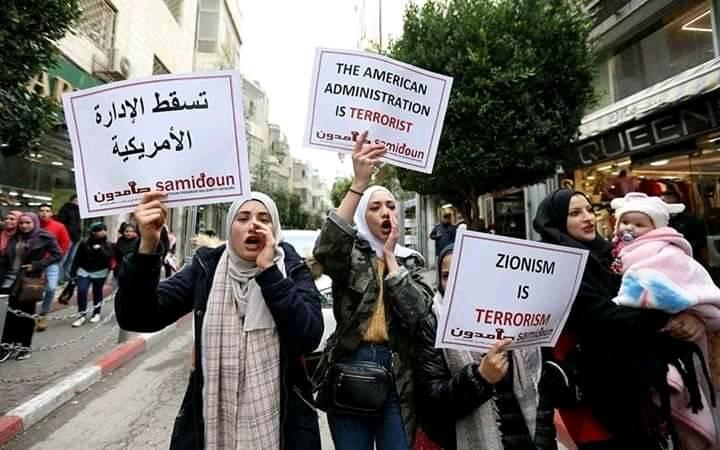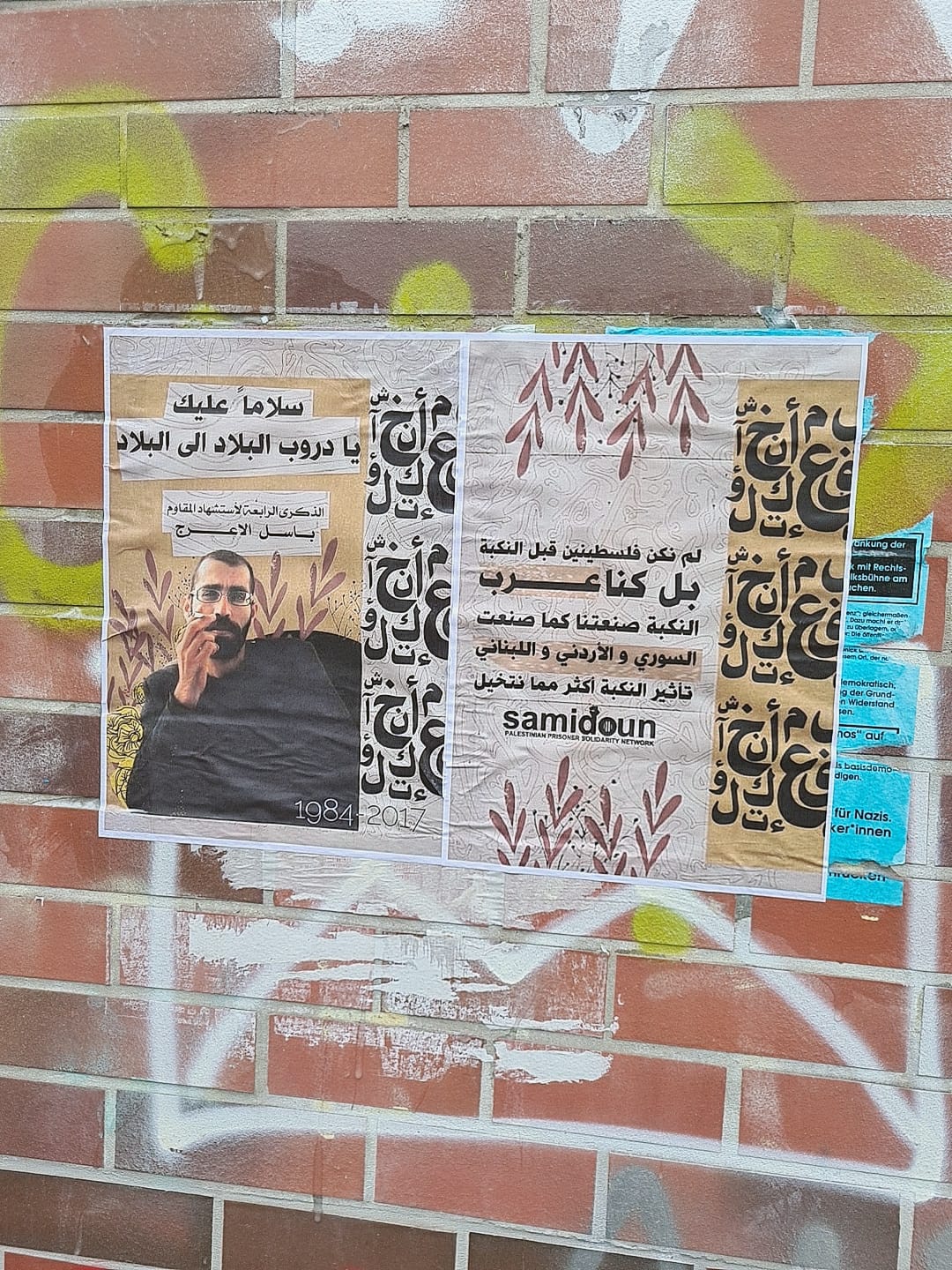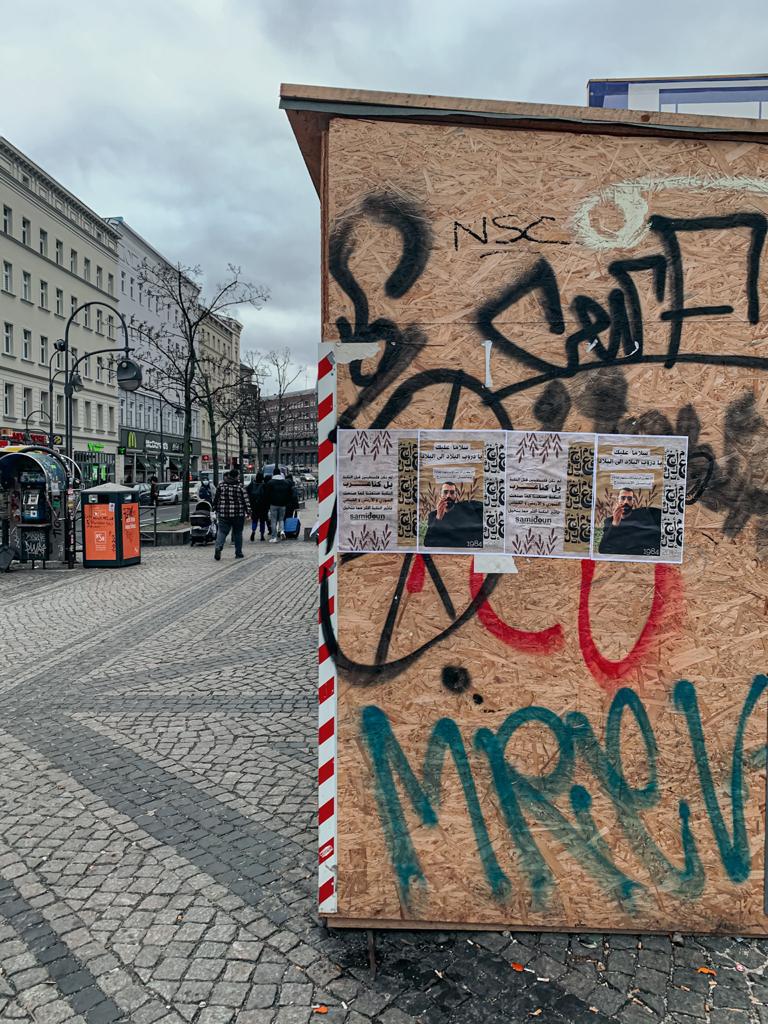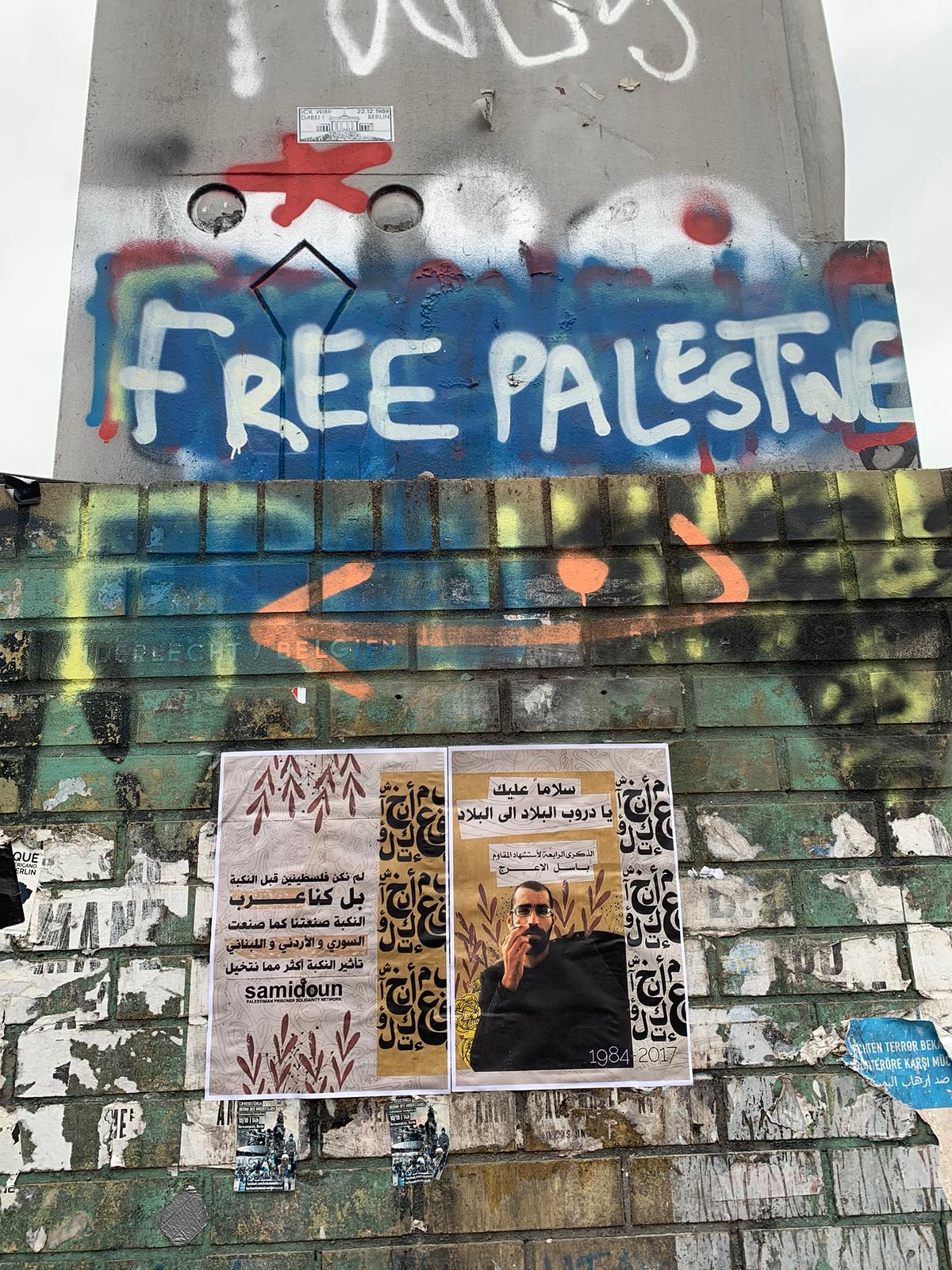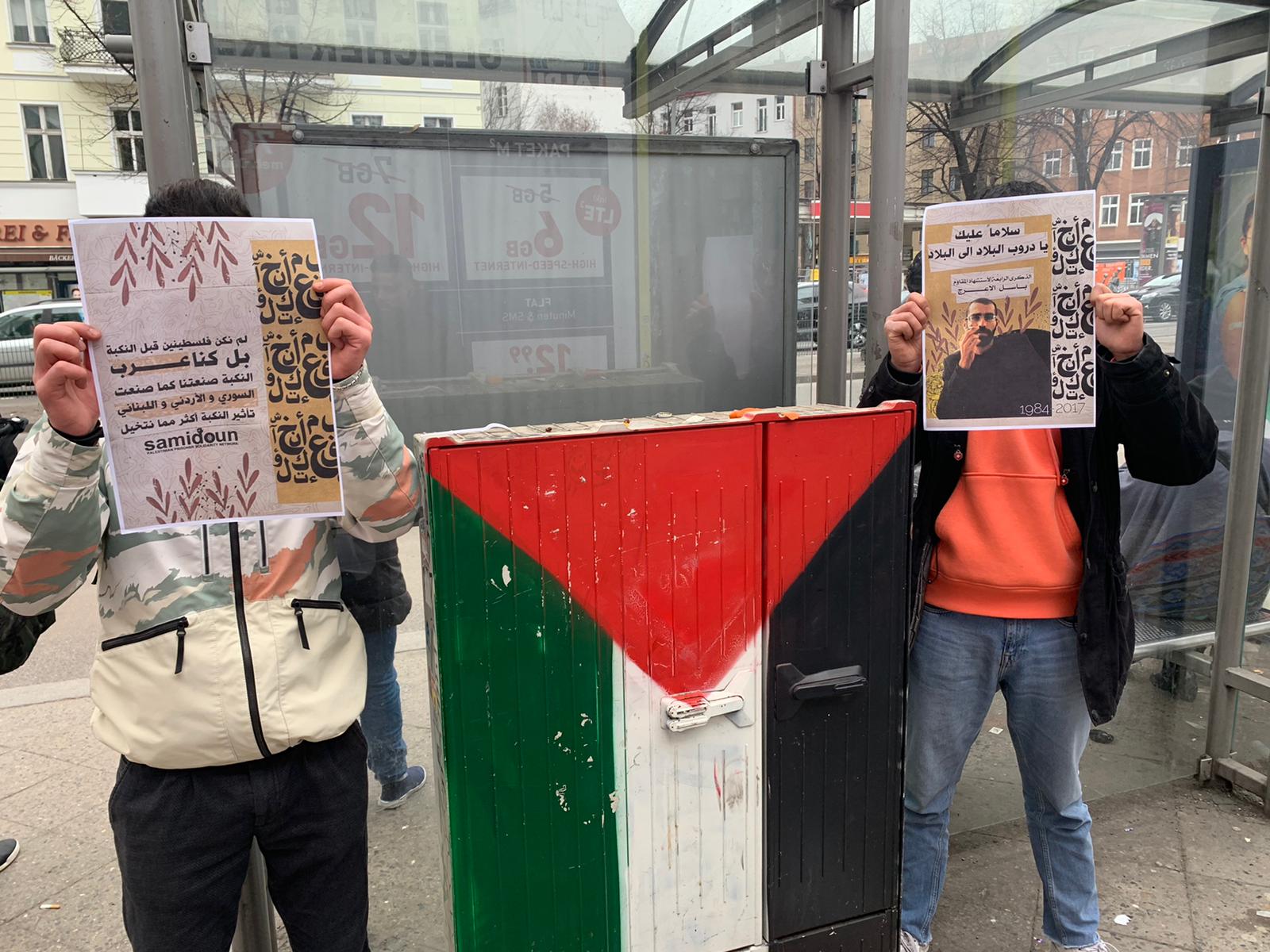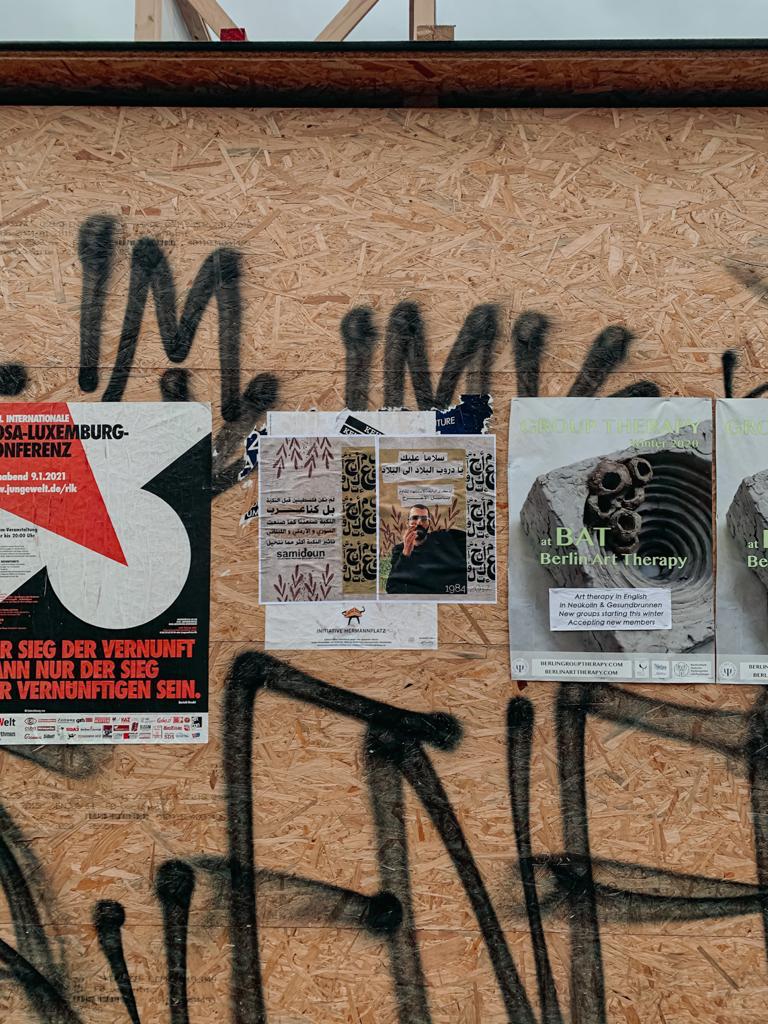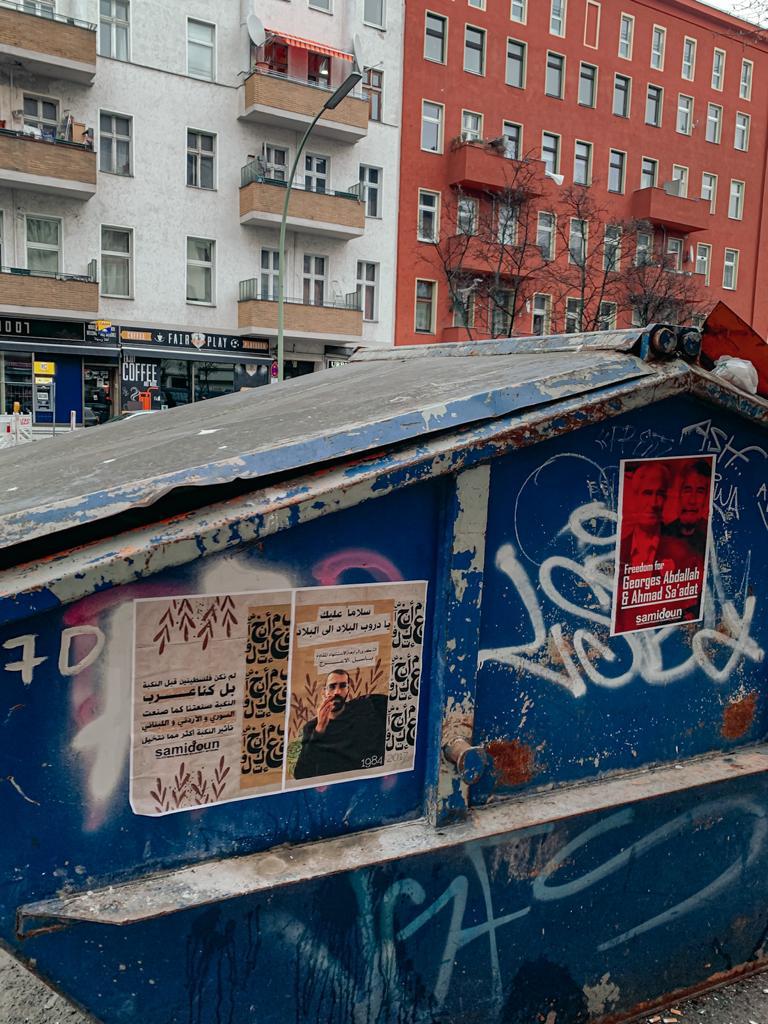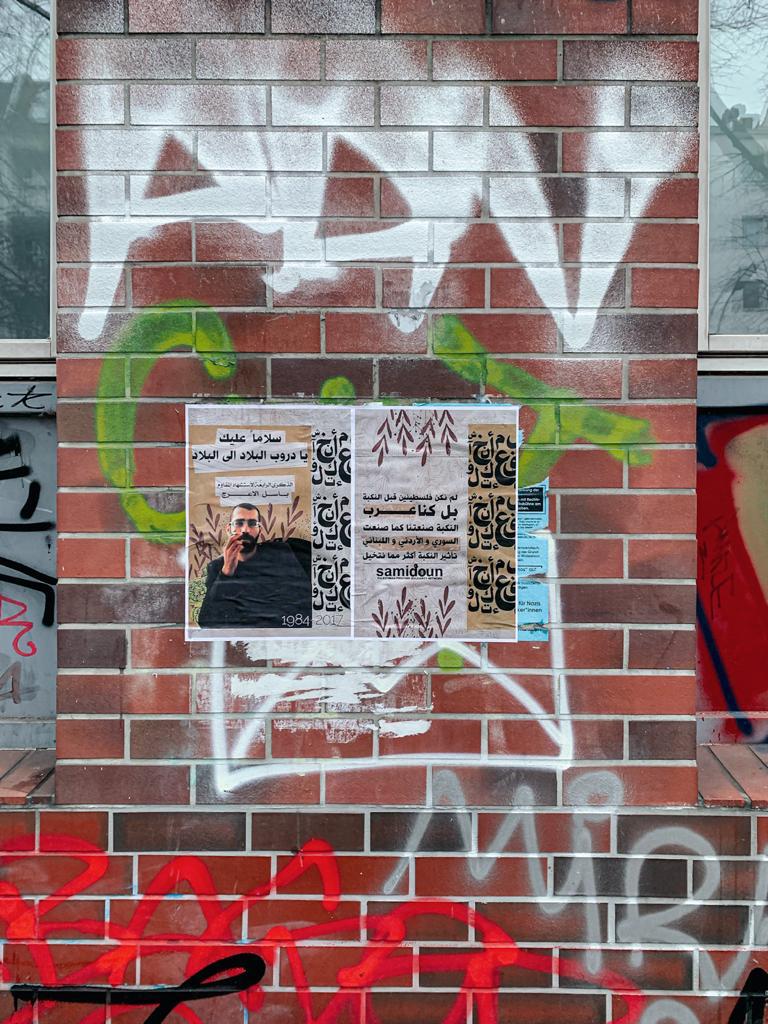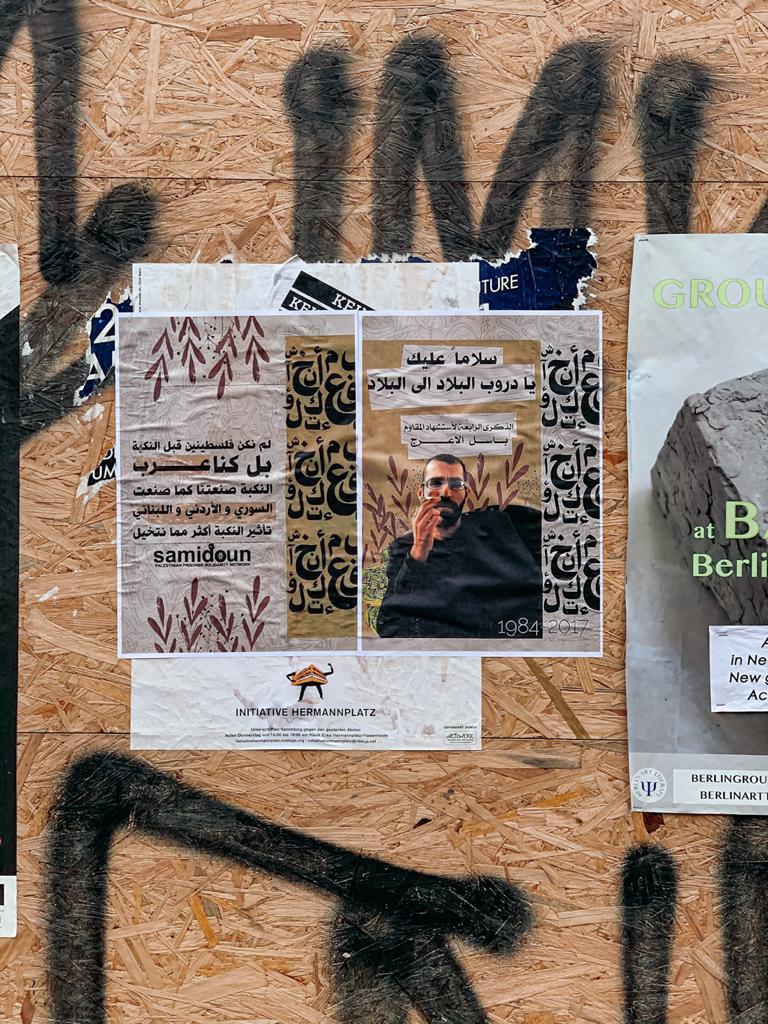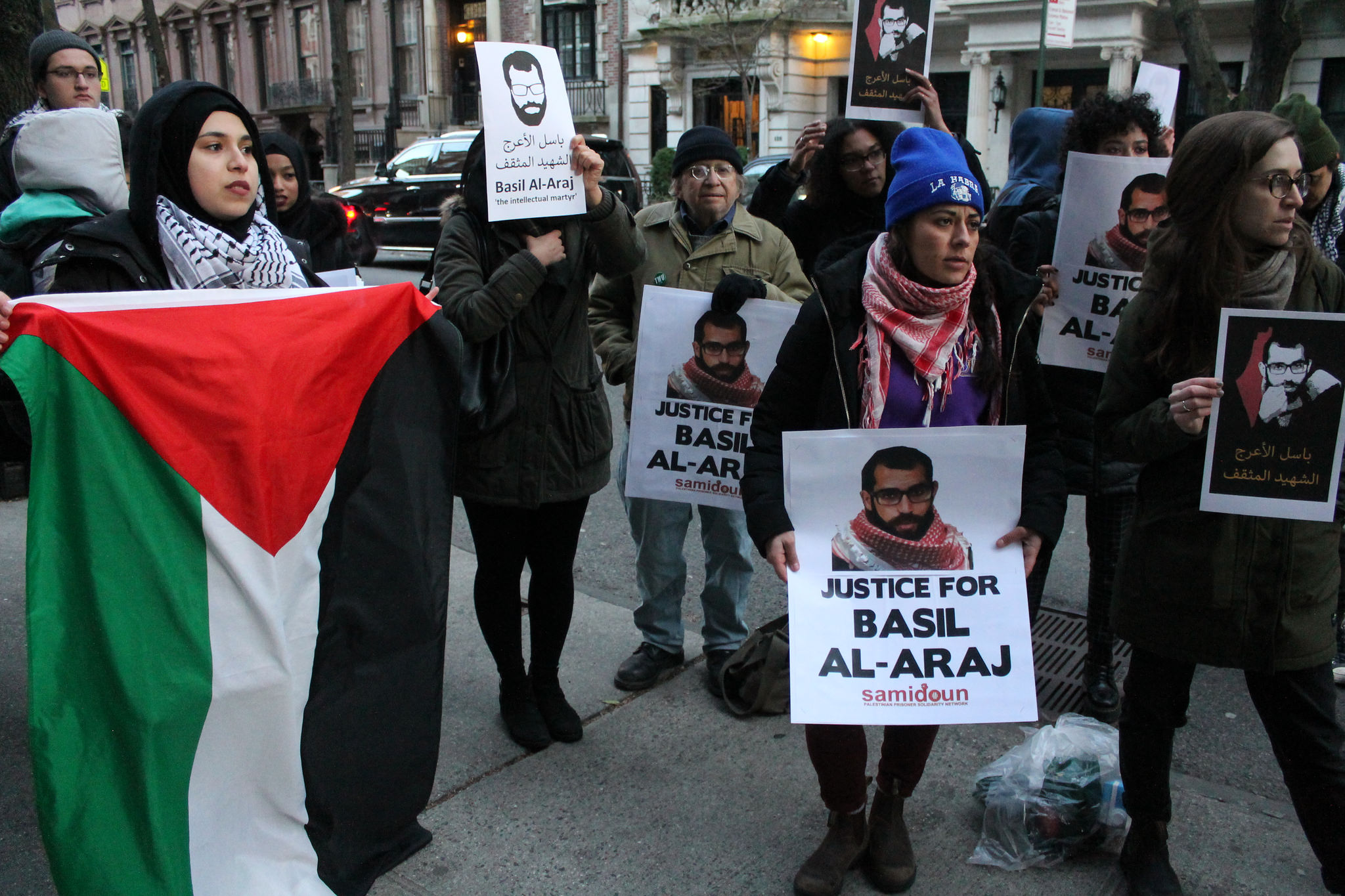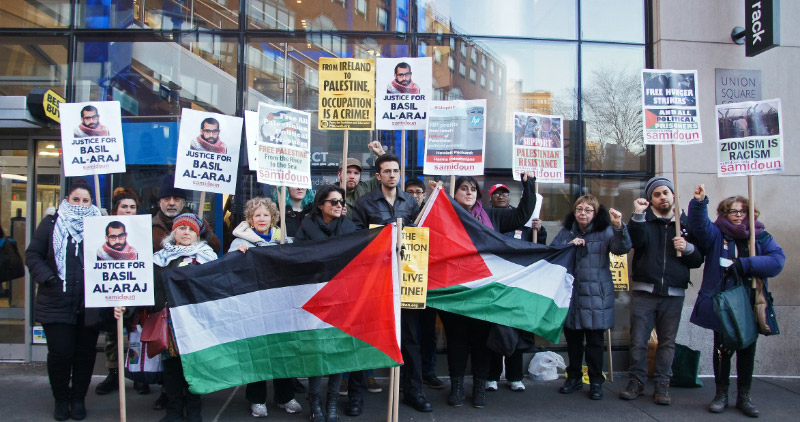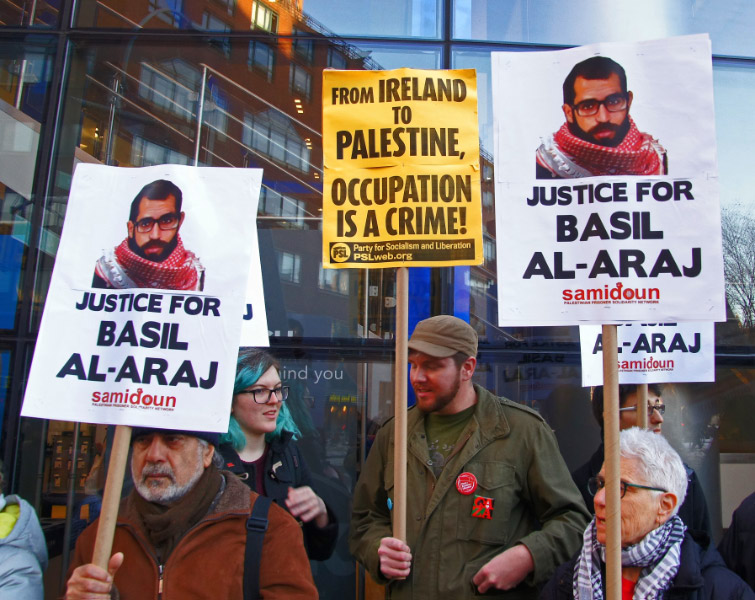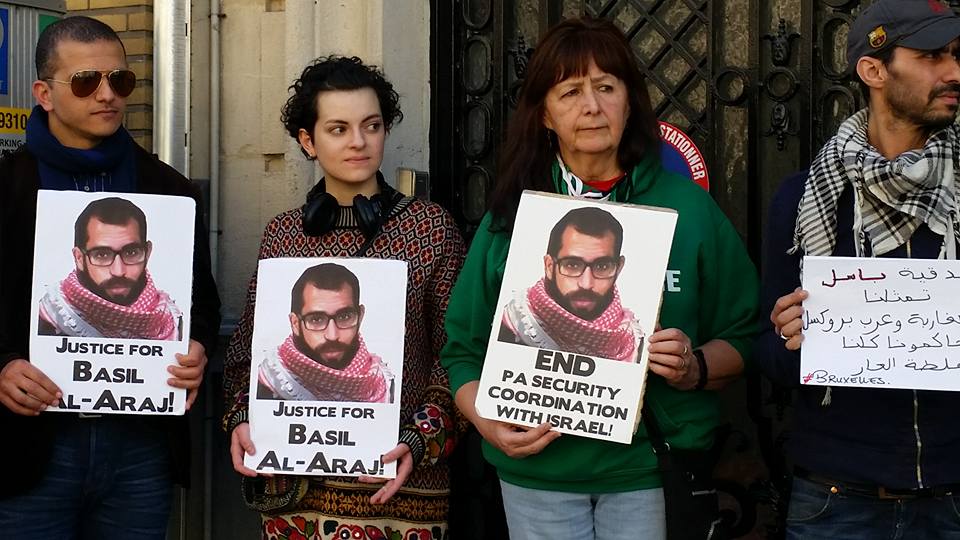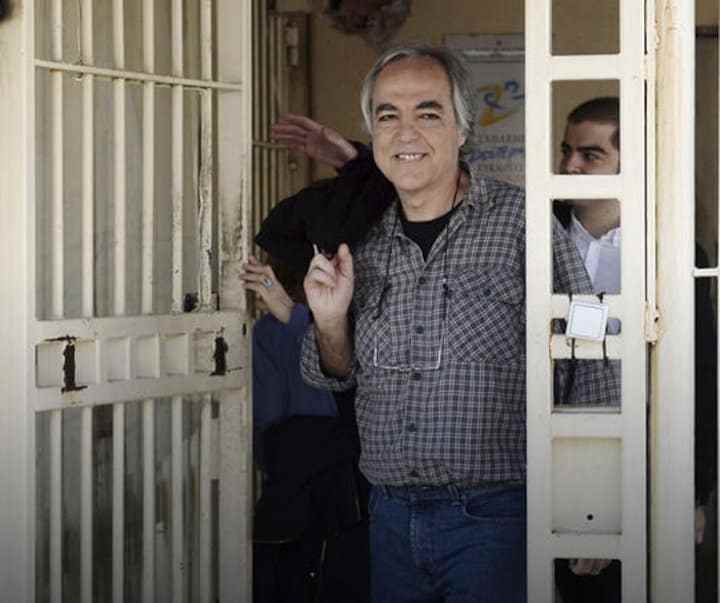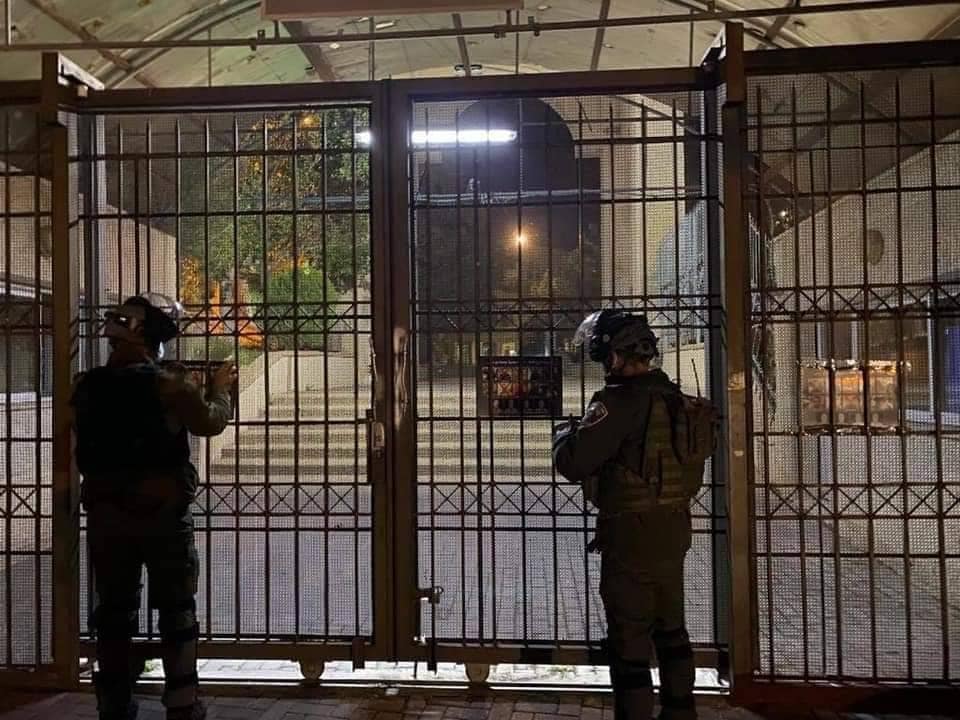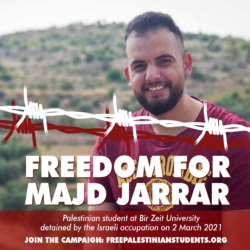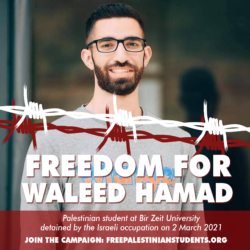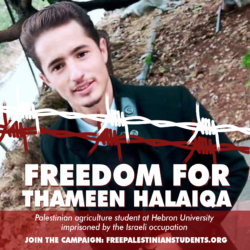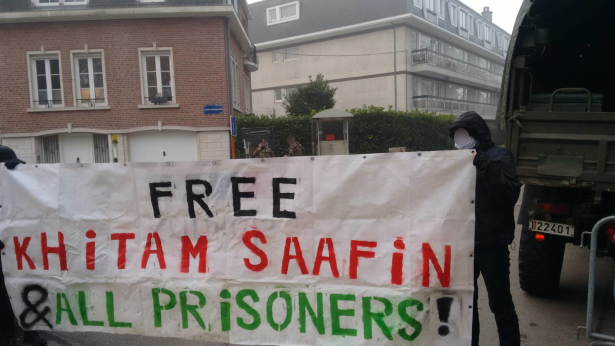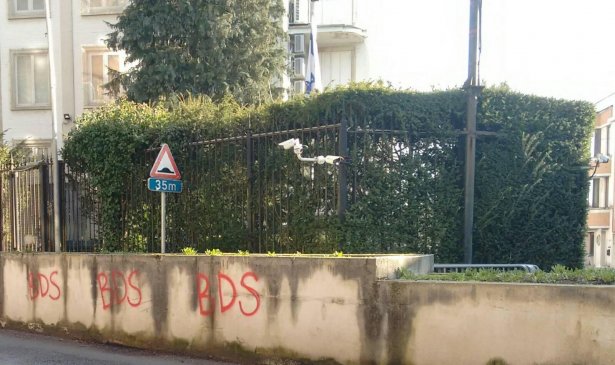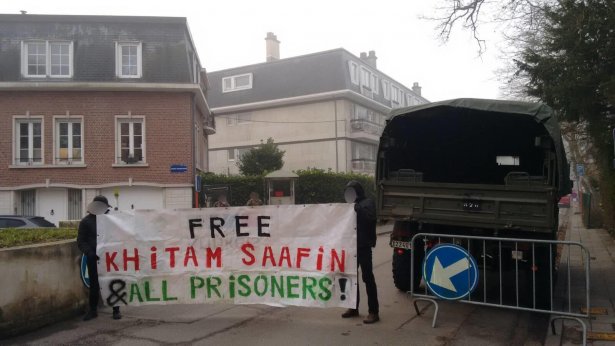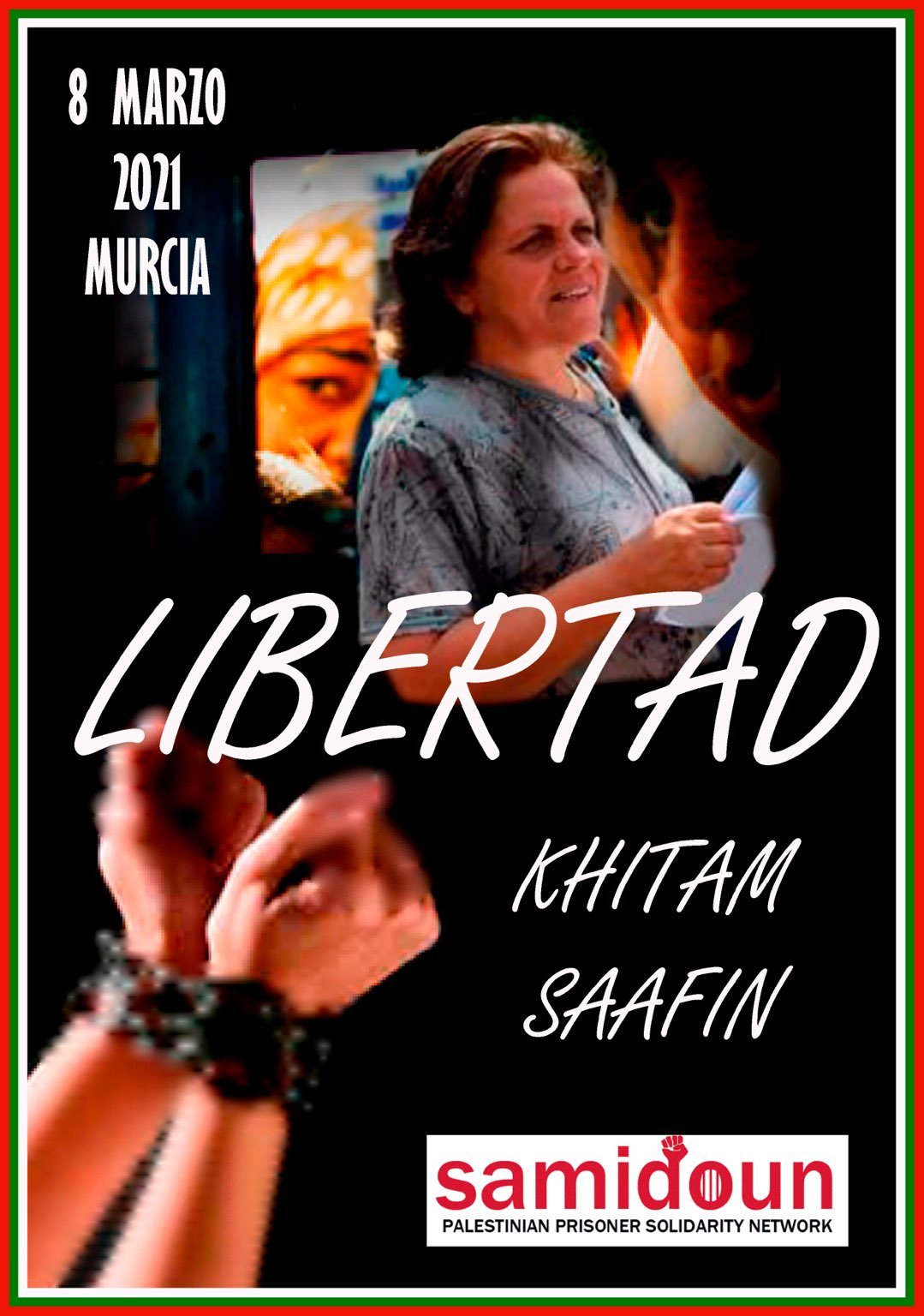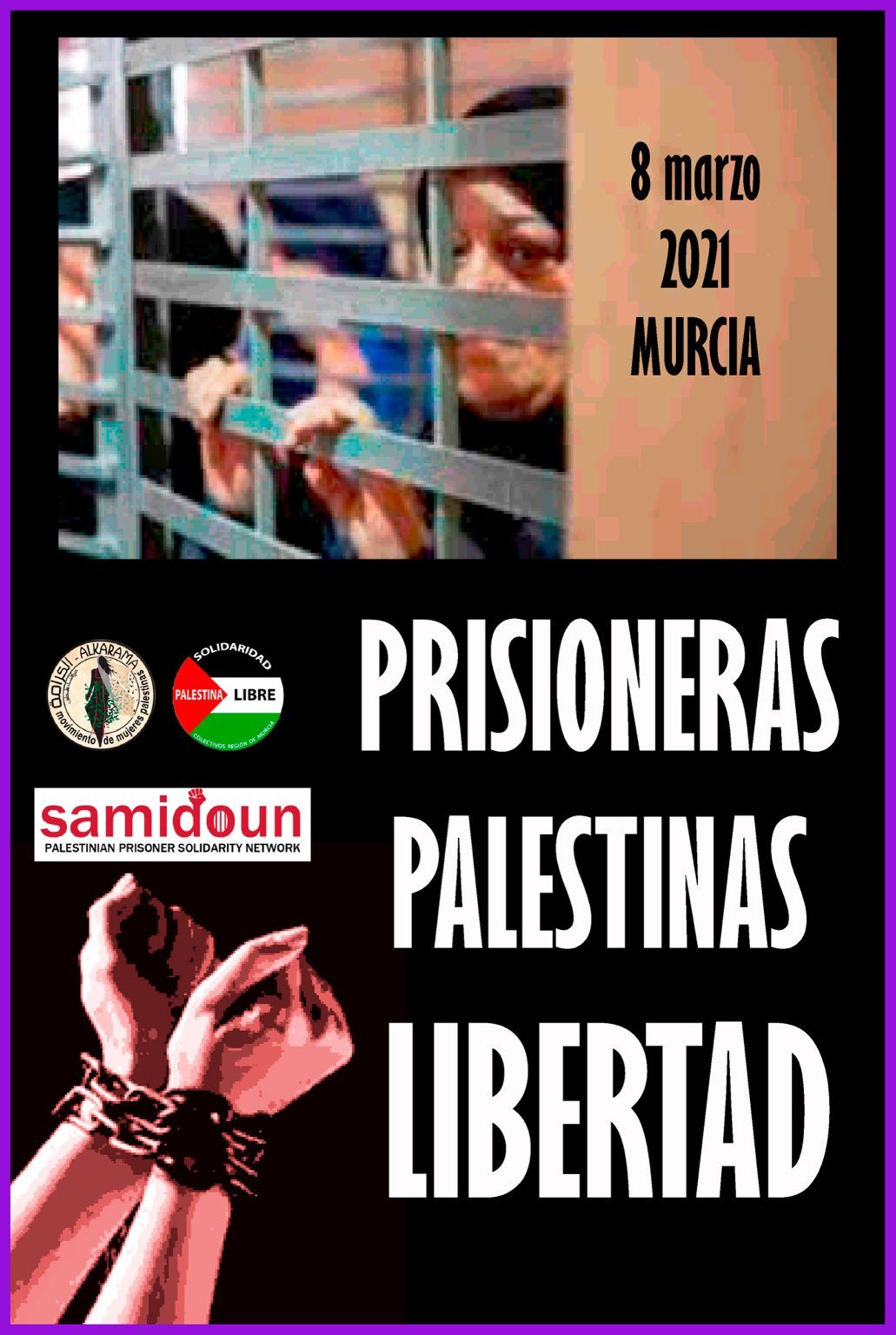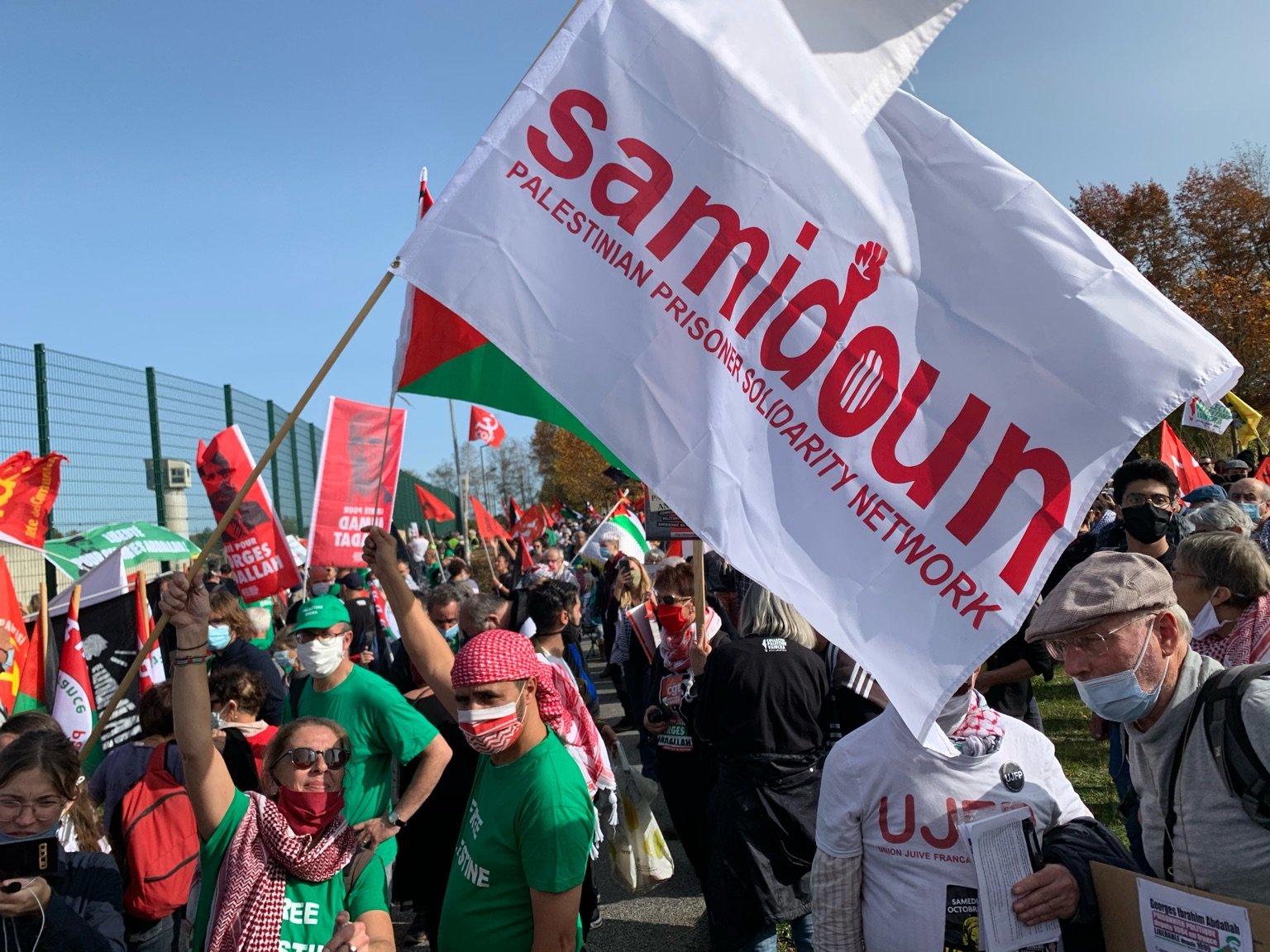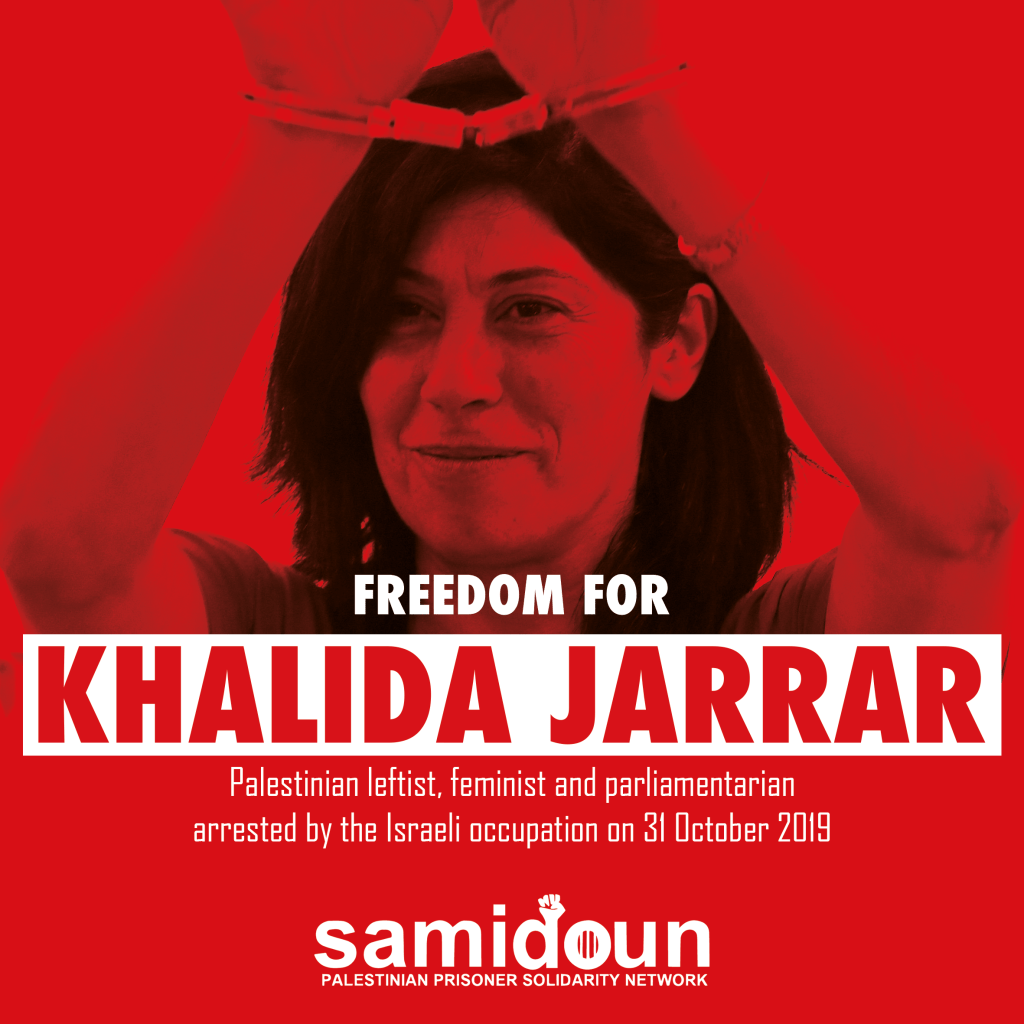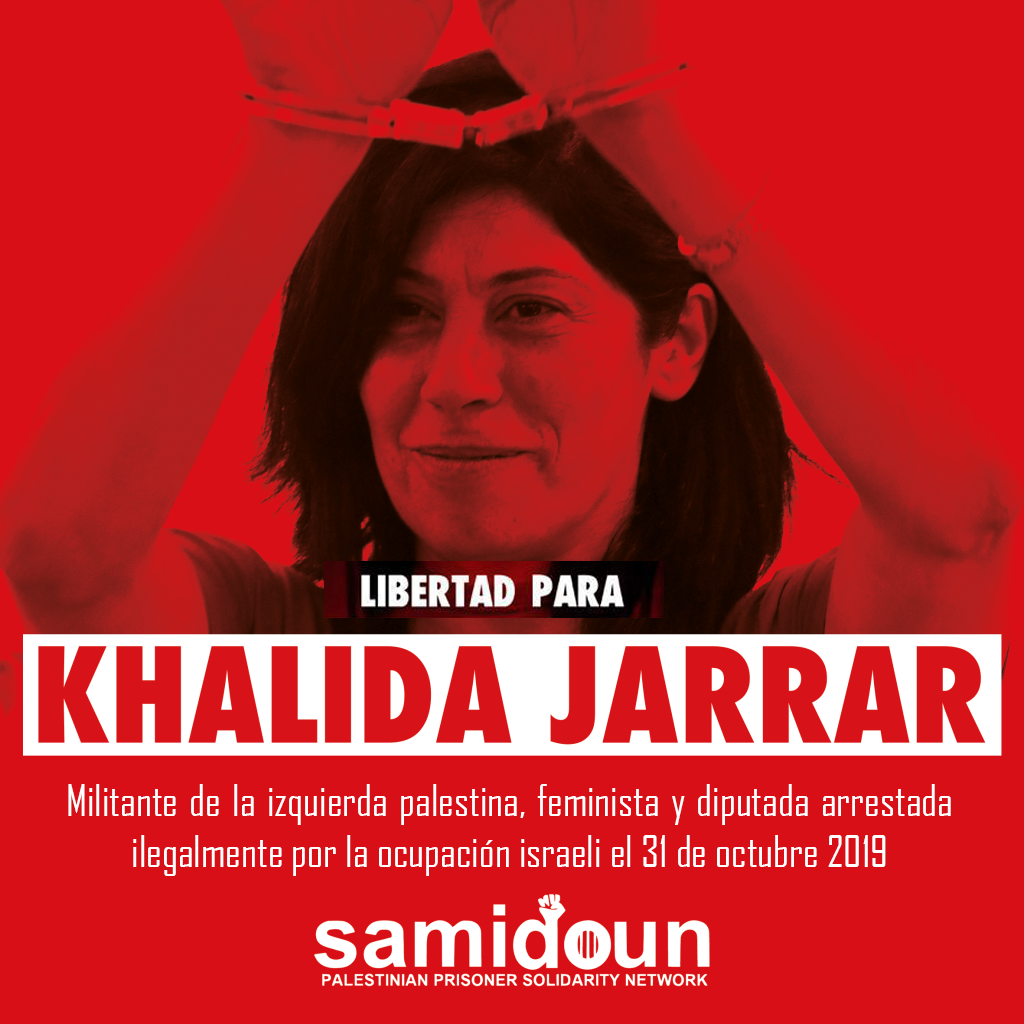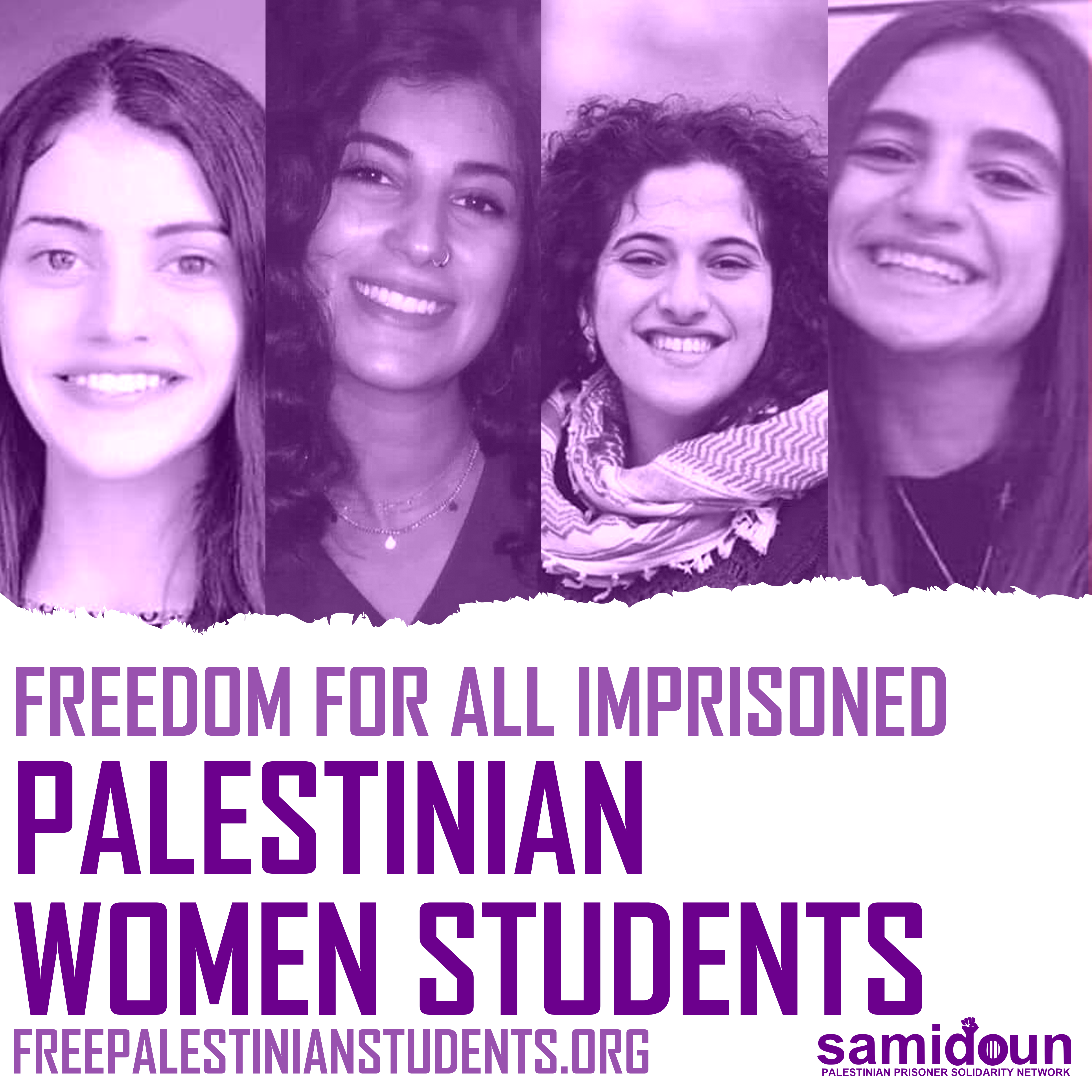
“To our colleagues, to Palestinian students and those around the world, from the heart of the Zionist prisons. On the occasion of 8th of March, we long for freedom, justice and equality for all women of the world, including students, inside and outside the prison cells. Our battle is united, as we are all fighting oppression on the basis of gender, fighting class exploitation and fascist colonialism and foremost among which is the occupation on our land. To our female university colleagues, who are at the front lines of the battle for change, our confidence is in your struggle and resistance that illuminates the sky of our homeland and lights the road for freedom. For all Palestinian women, we believe that our social struggle is an inherent part of the struggle of our people, and for the liberation of land and people, we sacrifice, struggle and bring forth strugglers.” – Bir Zeit University student prisoners, Layan Kayed, Elia Abu Hijleh, Ruba Assi, Shatha Tawil, Damon prison, Mount Carmel, 8 March 2021
“On this 8 March, humanity exposed to the devastation of the Corona pandemic on the one hand, and the regime of tyranny, racism and colonialism on the other hand. A thousand greetings to every voice that resists injustice and oppression. May women remain at the forefront of this resistance, and 8 March stand as a symbol of liberation!” – Khalida Jarrar, imprisoned Palestinian leader, feminist and rights advocate, Damon prison, Mount Carmel 7 March 2021
As we commemorate International Working Women’s Day around the world this 8 March, there are 35 Palestinian women in Israeli jails, representing all facets of Palestinian society: students, activists, organizers, parliamentarians, journalists, health workers, mothers, sisters, daughters, aunts, strugglers, freedom fighters. Palestinian women have always been at the center of the liberation movement through all aspects of struggle and have led within the prisoners’ movement, organizing hunger strikes and standing on the front lines of struggle even behind bars. On International Working Women’s Day, Samidoun Palestinian Prisoner Solidarity Network salutes the leading role of Palestinian women in struggle and urges the immediate release of all Palestinian women prisoners in Israeli occupation prisons.
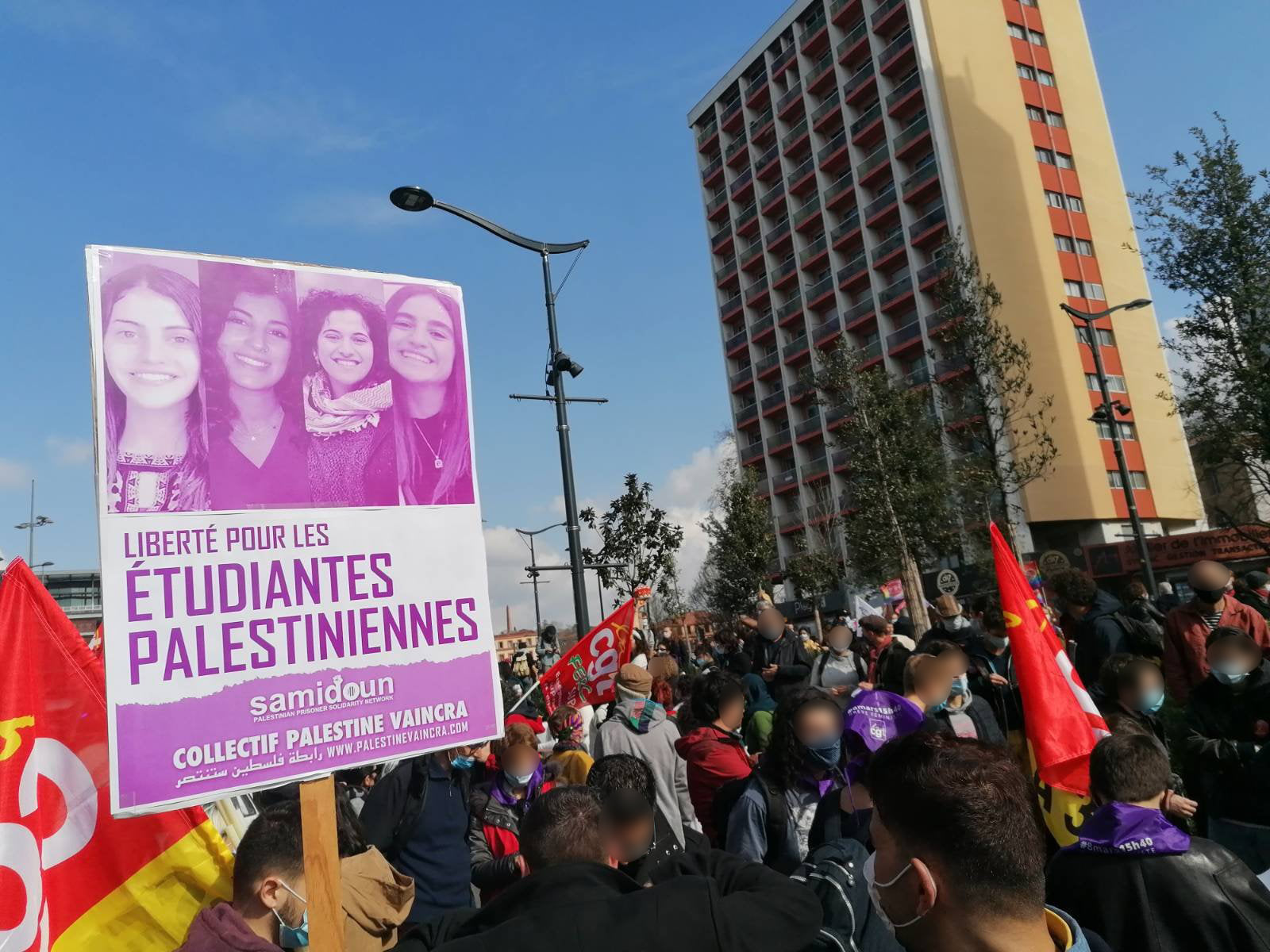
Palestinian women prisoners include 11 mothers, six injured women and three jailed without charge or trial under administrative detention. They include Khalida Jarrar, Palestinian parliamentarian, feminist, leftist and advocate for Palestinian political prisoners, sentenced to two years in Israeli prison for her public political activities just days prior to International Women’s Day; Khitam Saafin, President of the Union of Palestinian Women’s Committees, jailed without charge or trial, her administrative detention renewed for another four months; Bushra al-Tawil, Palestinian journalist and activist whose detention without charge or trial was also renewed for another four months on 7 March 2021.
They include Palestinian students, like Layan Kayed, Elia Abu Hijleh, Ruba Assi and Shata Tawil of Bir Zeit University. Hundreds of Palestinian students are routinely detained by the Israeli occupation, especially those who are part of student organizations involved with campus political life. At Bir Zeit University alone, approximately 74 students were detained by occupation soldiers during the 2019-2020 academic year.
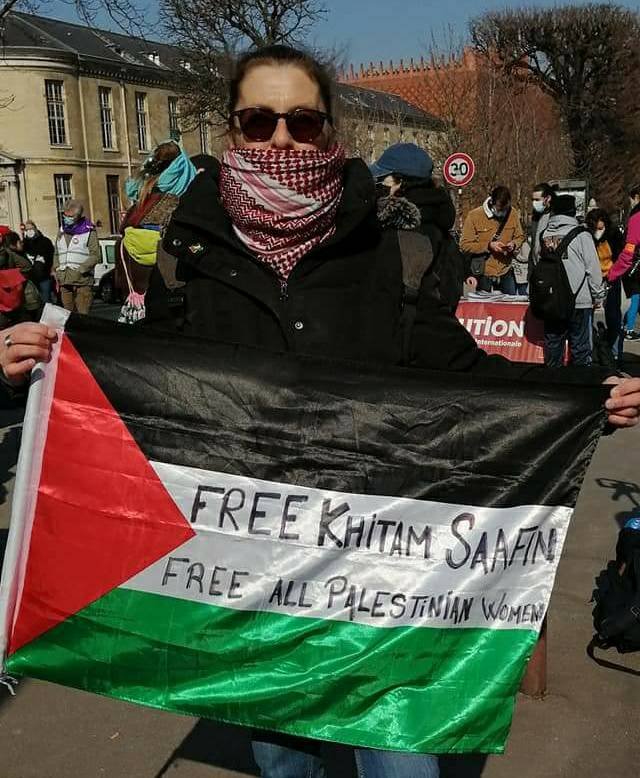
Palestinian women prisoners are among 5,000 total political prisoners, but Palestinian women are broadly affected by the mass incarceration of Palestinian men as well. Palestinian women are the mothers, wives, daughters, sisters, lovers and friends of Palestinian male prisoners. They make homes for themselves and their children, denied access to their husbands and fathers. They lead the movement outside prison to highlight the names, faces, voices and stories of all Palestinian prisoners struggling for liberation.
Since 1948 and before, from the earliest days of the Palestinian national liberation movement, Palestinian women have been expelled from their homes and targeted for repression on multiple levels, their very capacity to reproduce and raise their children labeled as an unacceptable threat to the racist settler-colonial project of Zionism. Since 1967 alone, around 10,000 Palestinian women have been jailed by the Israeli occupation for their political activity and involvement in the Palestinian resistance, including Palestinian women in Jerusalem, the West Bank, the Gaza Strip, and Palestinian women holding Israeli citizenship in occupied Palestine ’48. Palestinian women in exile and diaspora have been denied their right to return to Palestine for over 72 years yet continue to struggle, facing political repression, criminalization, deportation and imprisonment.
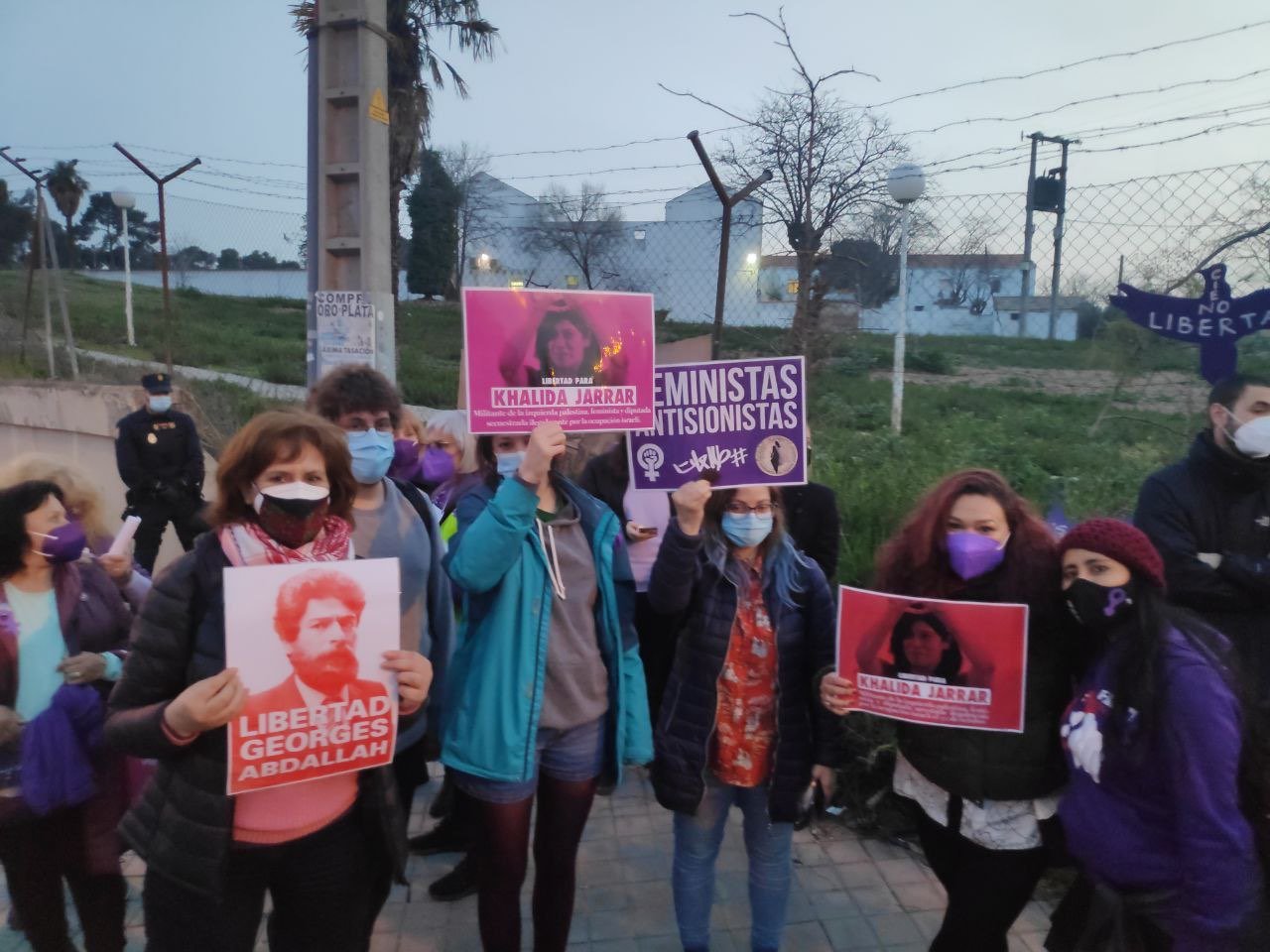
Palestinian women prisoners are routinely subjected to torture and ill-treatment by Israeli occupation forces, from the moment they are detained — often in violent night raids — and throughout the interrogation process, including beatings, insults, threats, aggressive body searches and sexually explicit harassment. Within Israeli prisons, the official state policy of “worsening the conditions” of Palestinian prisoners has particularly targeted Palestinian women, denied family visits or even phone calls, subjected to intense surveillance that violates their privacy, denied education and held in dangerous and unhealthy conditions. They are transported in the “bosta,” a metal vehicle where women are shackled on a long, circituous trip that takes hours longer than a direct route and often denied access to sanitary facilities.
Damon prison, itself formerly a stable for animals, is located in occupied Palestine ’48 — in violation of the Fourth Geneva Convention, and making it even more difficult for Palestinian women’s family members to visit them. All visits are subjected to an arbitrary permit regime which is often obstructed by the Israeli occupation regime.
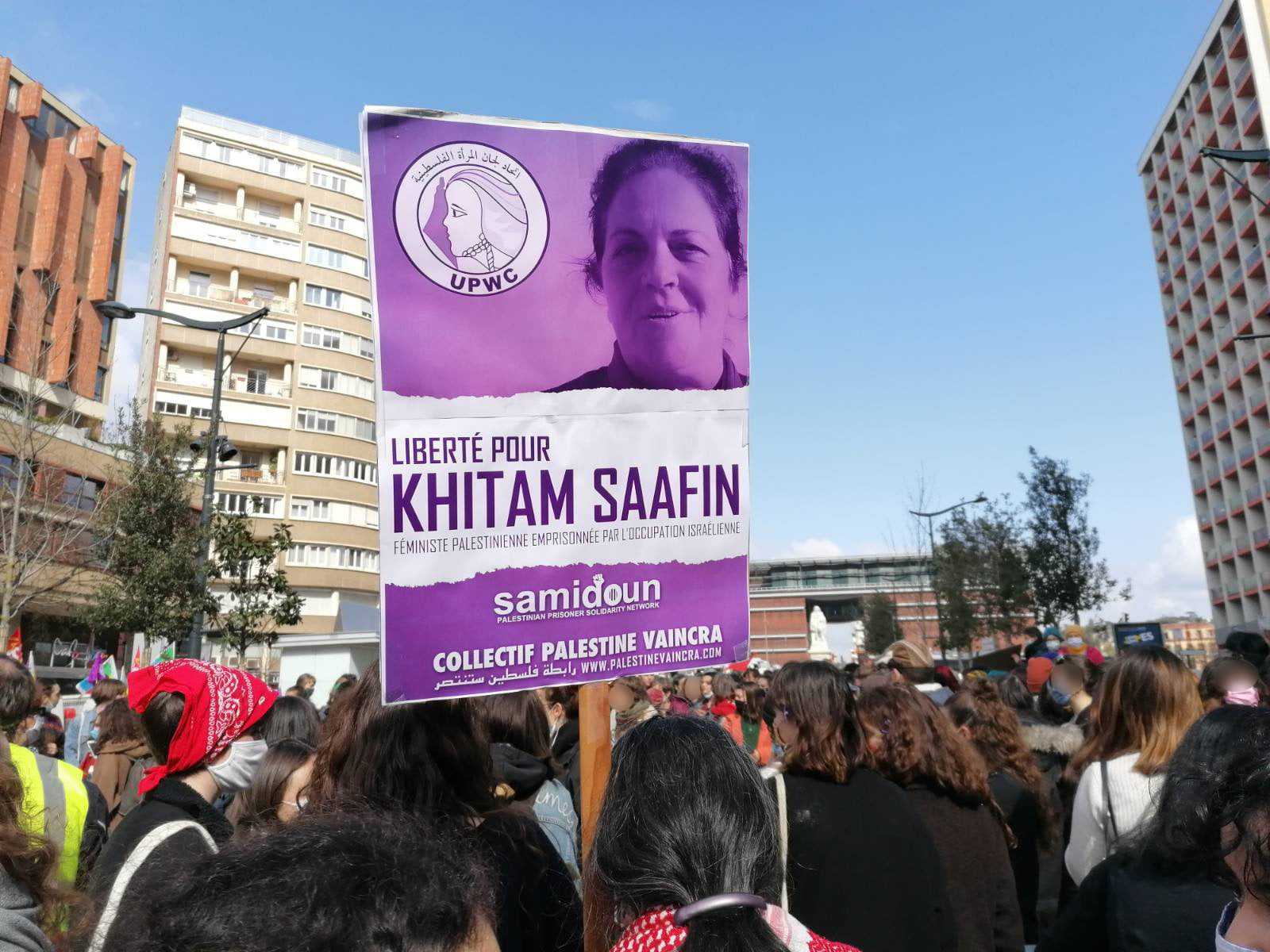
However, Palestinian women behind bars continue to resist and to lead. In April 1970, Palestinian women prisoners at Neve Tirza prison launched one of the first collective hunger strikes of the Palestinian prisoners’ movement when they refused food for nine days. They demanded access to women’s sanitary supplies as well as an end to beatings and solitary confinement. Palestinian women have been consistently involved in general hunger strikes and protest actions, including strikes led by women prisoners in 1985, 2004 and 2019 that inspired global women’s solidarity. Despite the denial of formal education by the Israeli colonial regime, Palestinian women prisoners have developed revolutionary education for all prisoners, expanding their knowledge and commitment to struggle.
Palestinian women prisoners are not alone; they struggle alongside fellow women political prisoners in the Philippines, Turkey, India, Egypt and around the world. And their imprisonment is also international: it is funded, backed and supported by the diplomatic, military, economic and political backing given to Israel by the imperialist powers, including the United States, Britain, Canada, Australia and the European Union states. Palestinian women also confront the role of the Palestinian Authority’s “security cooperation” regime under Oslo and the normalization politics and repressive attacks of reactionary Arab regimes.
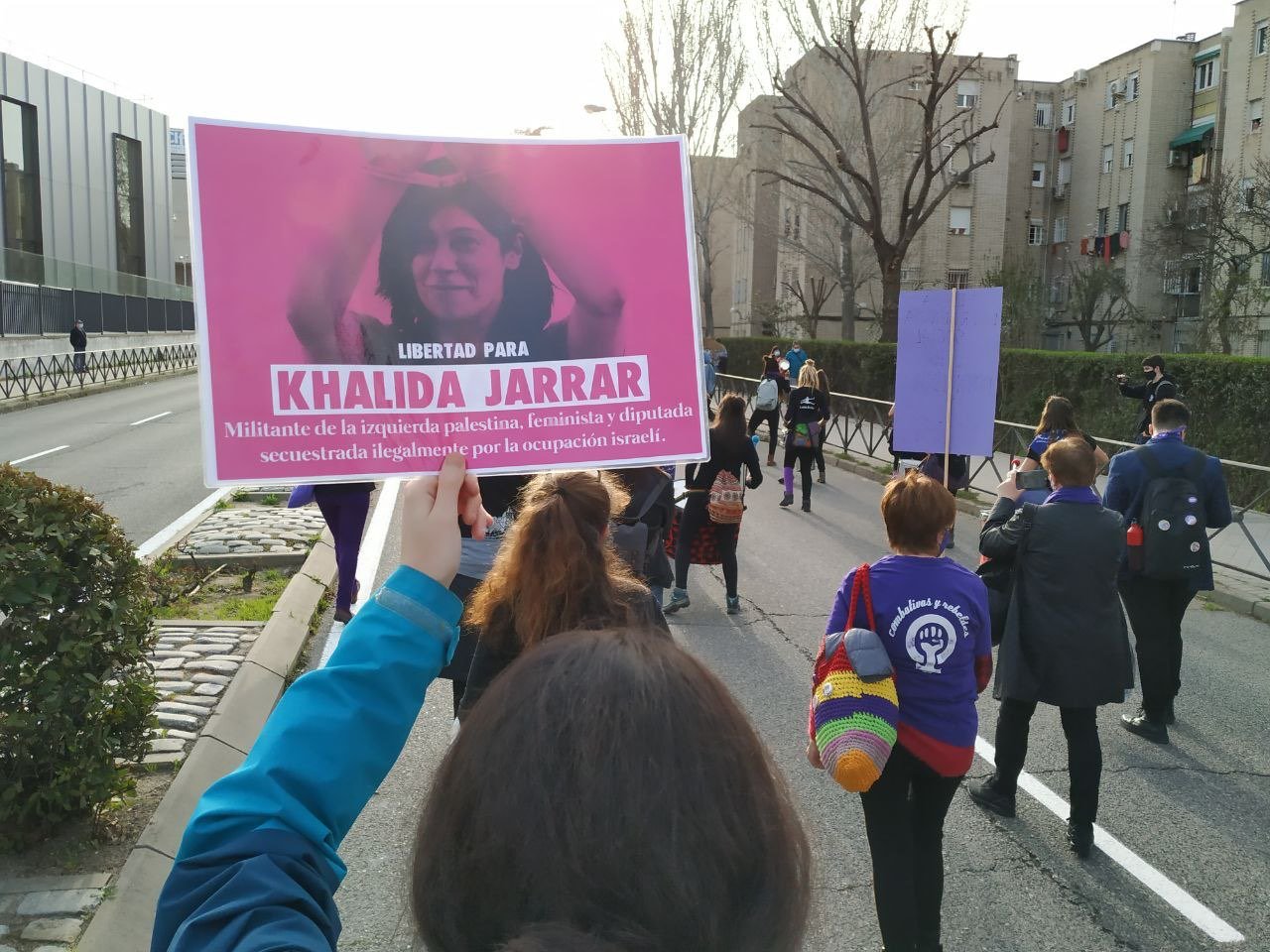
Despite all attempts of the Zionist regime to isolate them from the global movement for the liberation of women and humanity through imprisonment and repression, Palestinian women continue to organize and struggle from behind bars, in the streets and fields of occupied Palestine, and everywhere in exile in diaspora, seeking return and liberation. On International Women’s Day 2021, Samidoun Palestinian Prisoner Solidarity Network salutes the movement of Palestinian women and their leadership in the ongoing and daily struggle for national and social liberation.
We urge women’s organizations, student organizations and people of conscience everywhere to raise their voices and act in solidarity with Palestinian women, and Palestinian women prisoners, targeted by the Israeli occupation – including by building the movement for the boycott of Israel, its institutions and complicit corporations like HP, Puma, Teva Pharmaceuticals and G4S. The Israeli occupation wants to continue its colonization of Palestine unchecked by isolating and detaining the leaders of the Palestinian people’s movement. Now is the time to act and urge their immediate release and the liberation of all Palestinian prisoners, and of Palestine, from the river to the sea.
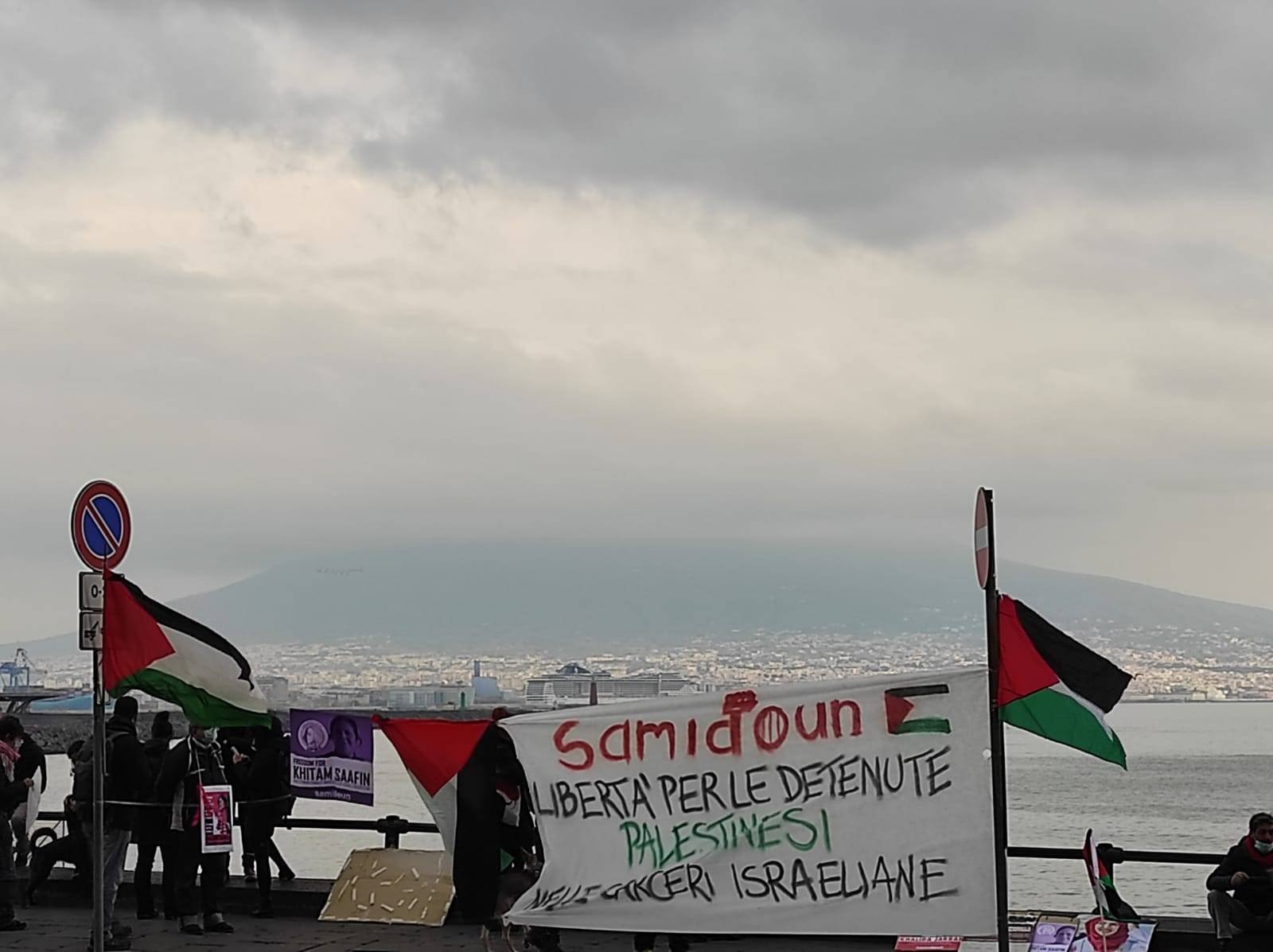
Take Action!
1. Join the Campaign to Free Palestinian Students! Over 325 organizations have already signed on to the campaign to take action to free imprisoned Palestinian students. Get involved at freepalestinianstudents.org.
2. Organize protests, demonstrations creative actions. Ad hacks, postering and other outdoor actions – especially near an Israeli embassy or consulate – can draw a significant amount of attention to the Palestinian women prisoners and the Palestinian cause at this critical time.
3. Build the boycott of Israel! Join the movement for boycott, divestment and sanctions against Israel. Highlight the complicity of corporations like Hewlett-Packard and the continuing involvement of G4S in Israeli policing and prisons. Build a campaign to boycott Israeli goods, impose a military embargo on Israel, or organize around the academic and cultural boycott of Israel.
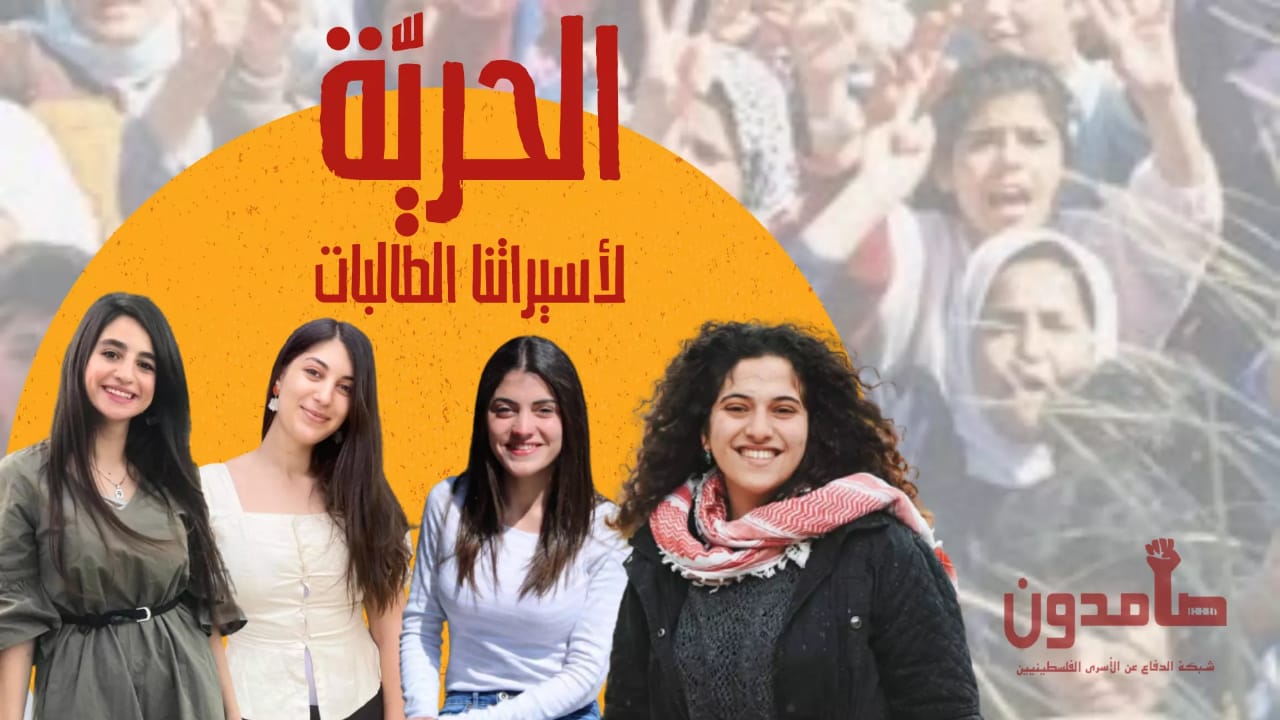 Resources on Palestinian women prisoners
Resources on Palestinian women prisoners
We recommend the following resources for more information on Palestinian women prisoners:
- Khalida Jarrar speaks out on women prisoners’ struggle as Ramallah protest urges their liberation, November 2020
-
Famed musician Roger Waters joins campaign to #FreeKhitamSaafin with unique musical contribution, November 2020
- Steadfastness and resistance: Palestinian women prisoners confront repression, Charlotte Kates, March 2020
- International Women’s Day … 43 Palestinian Women in Detention, March 2020, Addameer
-
Khalida Jarrar: New Video and Resources, April 2020, Samidoun
-
Nahla Abdo, From Captive Revolution to Grand Gaza Prison: https://plutopress.wordpress.com/2014/08/21/from-captive-revolution-to-grand-gaza-prison/
- Nahla Abdo’s book, Captive Revolution: https://www.plutobooks.com/display.asp?K=9780745334936&%3C/)
-
“For the Love of Palestine:” New booklet highlights stories of Palestinian women prisoners – November 2016, Prison, Labor and Academic Delegation to Palestine
- Sahar Francis, Gendered Violence in Israeli Detention, Journal of Palestine Studies, summer 2017
-
Remembering Therese Halasa, Palestinian revolutionary: Rima Tannous’ prison story – Samidoun, March 2020. With reprint of historical account of Palestinian freed prisoner Rima Tannous
-
Soraya Antonius, Prisoners for Palestine: A List of Women Political Prisoners – Journal of Palestine Studies, 1980
-
Addameer, Occupied Lives: The Imprisonment of Palestinian Women and Girls: http://www.addameer.org/publications/occupied-lives-imprisonment-palestinian-women-and-girls
-
Leena Jawabreh, Facing imprisonment in Israeli Jails: A Palestinian Woman’s Testimony: https://samidoun.net/2013/09/facing-imprisonment-in-israeli-jails-a-palestinian-womans-testimony-by-leena-jawabreh/
-
Film, Women in Struggle, Dir: Buthaina Canaan Khoury, 2004: https://www.youtube.com/watch?v=v0Va7-cNxf8
-
Film, Tell Your Tale, Little Bird, Dir: Arab Loutfi, 2007: https://www.youtube.com/watch?v=wdkoxBjKM1Q
-
The Struggle of Palestinian Women (PLO, 1975): http://www.palestinianconference.org/wp-content/uploads/2013/02/PLO-PalestinianWomen.pdf
-
International Women’s Day and the General Union of Palestinian Women, PFLP Bulletin, April 1982: http://www.palestinianconference.org/wp-content/uploads/2013/03/WomensDay-PFLPBulletin-April1982.pdf
-
Palestinian Women Develop Their Struggle through Democratic Revolutionary Resolutions, September 1974, PFLP Bulletin: http://www.palestinianconference.org/wp-content/uploads/2013/03/WomensDay-PFLPBulletin-13-SepOct74.pdf
-
Women’s Struggle in Occupied Palestine, Democratic Palestine, May 1984: http://www.palestinianconference.org/wp-content/uploads/2013/03/WomensStruggle-DemocraticPal-Mar1984.pdf

